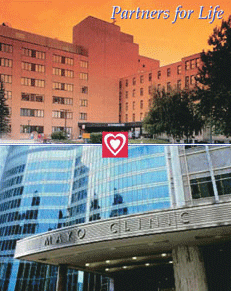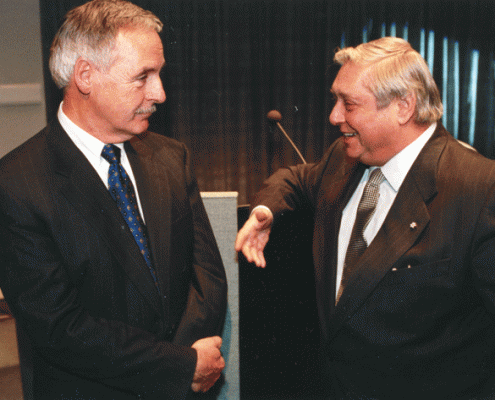The St. Boniface General Hospital and Mayo Clinic Partnership
To be the best, you must learn from the best. It’s a simple concept that St. Boniface General Hospital believes in very strongly and, through the support of The Asper Foundation, has resulted in a strategic partnership between St. Boniface General Hospital and arguably the world leader in clinical research, the Mayo Clinic in Rochester, Minnesota. A total of $1.5 million from The Asper Foundation’s $5 million gift has been allocated to establishing and maintaining this partnership, which will consist of an exchange of knowledge and information through a variety of sources including:
Researcher Exchanges: Beginning in September 2003, a researcher from St. Boniface General Hospital has travelled annually to the Mayo Clinic to work within one of their clinical research programs, after which they return to St. Boniface General Hospital to use and disseminate what they have learned. Under the same premise, each year a researcher travels from the Mayo Clinic to St. Boniface General Hospital to work within one of its basic research labs, the knowledge from which will be used to further the Mayo Clinic’s basic research program.
Group Symposiums: Once a year, on an alternating basis, teams travel from one site to the other to attend an educational symposium on a specific area of the site’s expertise.
Open Communication: Through the ongoing development of relationships between researchers and physicians from the two sites, individuals are able to utilize open communication to the benefit of their programs. Patient care and medical research are always improved through collaboration. The strategic partnership between St. Boniface General Hospital and the Mayo Clinic bring together leading basic and clinical researchers in a concentrated effort to alleviate the suffering caused by some of the most deadly diseases and conditions.



